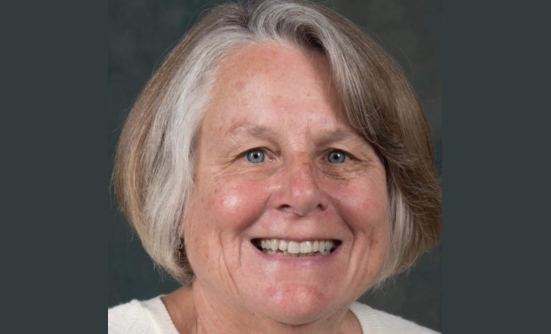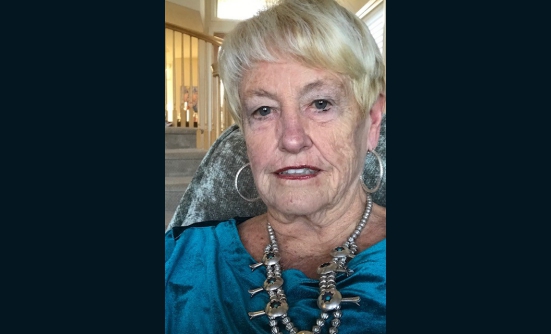July 2018 marked a huge celebration for me: my 10-year “cancerversary” of being in remission from advanced ovarian cancer. It also was the 10th anniversary of FDA approval of Avastin (bevacizumab) for first-line treatment of advanced ovarian cancer. Here are my reasons for celebrating then and now, 1 year later.
The Power of Information
In July 2008, at age 67, I was diagnosed with advanced (stage IIIC) ovarian cancer. I was incompletely debulked (still had cancer after surgery) and was told I had a 25% to 35% chance of surviving 5 years. Needless to say—I was devastated.
My son, Ben McElhiney, was then a pharmaceutical representative for SmithKline Beecham (now GlaxoSmithKline), and he called on a gynecologist oncologist, Randy Gibbs, MD, at the Billings Clinic in Montana. When I was diagnosed, Ben called Dr. Gibbs, who told him that many patients with ovarian cancer were helped by adding to the then gold standard treatment with chemotherapy (carboplatin and paclitaxel) a nonchemotherapy drug called Avastin.
This drug had not yet been approved by the FDA for ovarian cancer, but it was available for free through a clinical trial (GOG 218); however, if the patient in the trial wanted to be sure she would get this drug, it would cost her $6,500 every 3 weeks. The treatment protocol in the clinical trial was 6 rounds of chemotherapy with carboplatin and paclitaxel, plus Avastin, followed by 1 year of maintenance therapy with Avastin only.
A Life-Saving Drug, at Huge Cost or Free?
Our family convened, discussed the pros and cons of my taking the drug and decided that using my retirement savings from college teaching was risky but, we hoped, a life-saving choice. At the time, my retired husband and I had been spending summers in Colorado and winters in California. After my debulking surgery in Denver in July 2008, I received 4 treatments, at a cost of $6,500 each, in Colorado. That October, we returned to Palm Desert, California, and I continued my treatment at the Lucy Curci Cancer Center at Eisenhower Hospital.
At the end of December 2008, I completed 6 rounds of treatment and gave Eisenhower Hospital, in Palm Desert, a check for $13,000. To my complete surprise, my check was returned, because Medicare covered the cost of this drug (Avastin) in California.
I was grateful, but perplexed: why was a drug covered in one state and not another? I shared this experience with Colorado ovarian cancer survivors. We learned that Medicare coverage was determined by different contractors in different states; therefore, a drug could be covered in one part of the country and not in another.
We lobbied our state representatives and, eventually, Avastin was covered in Colorado for people with recurrent (returning) ovarian cancer, but not for first-line treatment.1
The High Price of Slow Drug Approval
In July 2018, I completed 10 years of being in remission, thanks to Dr. Gibbs and Ben’s advice. Just a month earlier, in June 2018, Avastin was finally approved by the FDA for first-line treatment in women with advanced (stage III or IV) ovarian cancer.2
However, during those 10 years before its approval, I’ve watched too many sister survivors die of this disease. No one knows if their cancer would have responded to Avastin as mine did, but the FDA approval process still takes far too long, and many lives are lost in the interim.
According to the National Cancer Institute, in 2019, about 22,500 women will be diagnosed with ovarian cancer, and about 14,000 women will die of the disease.3 Between 2009 and 2015, only 46.7% of women with ovarian cancer survived 5 years or longer.3 This high mortality rate is probably because the majority (70%-90%) of ovarian cancer cases recur (return) within 2 years.4 In fact, ovarian cancer is the number one cause of death from gynecologic cancer.4
Turning to Advocacy
Precisely because of my own good fortune, I’ve become an ovarian cancer advocate for the Colorado Ovarian Cancer Alliance, and for the Clearity Foundation, a San Diego molecular-profiling nonprofit organization for ovarian tumors. I’ve also served as a consumer advocate on a committee for the Department of Defense Ovarian Cancer Research Program. This committee reads and ranks findings for research proposals for ovarian cancer.
The silver lining for me is that now, at age 78 (11 years in remission from ovarian cancer, and retirement from a satisfying career as a college professor), I have a new purpose in life besides surviving. My purpose is to see that each newly diagnosed ovarian cancer patient gets the best treatment possible to help her survive.
In 11 years, the treatment for ovarian cancer has made progress, but far too slowly. Therefore, my hope is that every woman diagnosed with ovarian cancer will step forward, share her experience, and work toward the goal of speeding up research and drug approval. That also means more money for ovarian cancer than the $109 million allocated for ovarian cancer research in 2017 compared with the amount of money allocated to breast cancer ($545 million) or to prostate cancer ($223 million) in the same period.5
Despite some progress, the rate of survival for women with ovarian cancer is still quite low, and the current rate of cancer recurrence is extremely high. Perhaps if research produces tests for early diagnosis and more effective first-line treatment options, including for maintenance, more ovarian cancer survivors will live longer, healthier lives.
My 10-year cancerversary is personal. But I hope that readers and survivors will join me in celebrating FDA approval of Avastin. Ovarian cancer survivors need “resilience,” because progress is still much too slow.
My painting “Madam Resiliency” reflects this feeling.
Key Points
- In 2019, about 22,500 women will be diagnosed with ovarian cancer, and about 14,000 women will die of the disease
- In June 2018, the FDA finally approved Avastin, in combination with chemotherapy, for first-line treatment, after surgery, of women with advanced ovarian cancer
- In 11 years, the treatment for ovarian cancer has made progress, but the FDA approval process is still too slow
References
- Brown J. Promising ovarian cancer drug not covered by Medicare in Colorado. Denver Post. August 26, 2009. www.denverpost.com/2009/08/26/promising-ovarian-cancer-drug-not-covered-by-medicare-in-colorado/.
- US Food and Drug Administration. FDA approves bevacizumab in combination with chemotherapy for ovarian cancer. June 13, 2018. www.fda.gov/drugs/resources-information-approved-drugs/fda-approves-bevacizumab-combination-chemotherapy-ovarian-cancer.
- National Cancer Institute. Cancer stat facts: ovarian cancer. Updated April 2019. https://seer.cancer.gov/statfacts/html/ovary.html.
- Ovarian Cancer Research Alliance. Recurrence. https://ocrahope.org/patients/about-ovarian-cancer/recurrence.
- National Cancer Institute. Funding for research areas. December 20, 2018. www.cancer.gov/about-nci/budget/fact-book/data/research-funding.
















